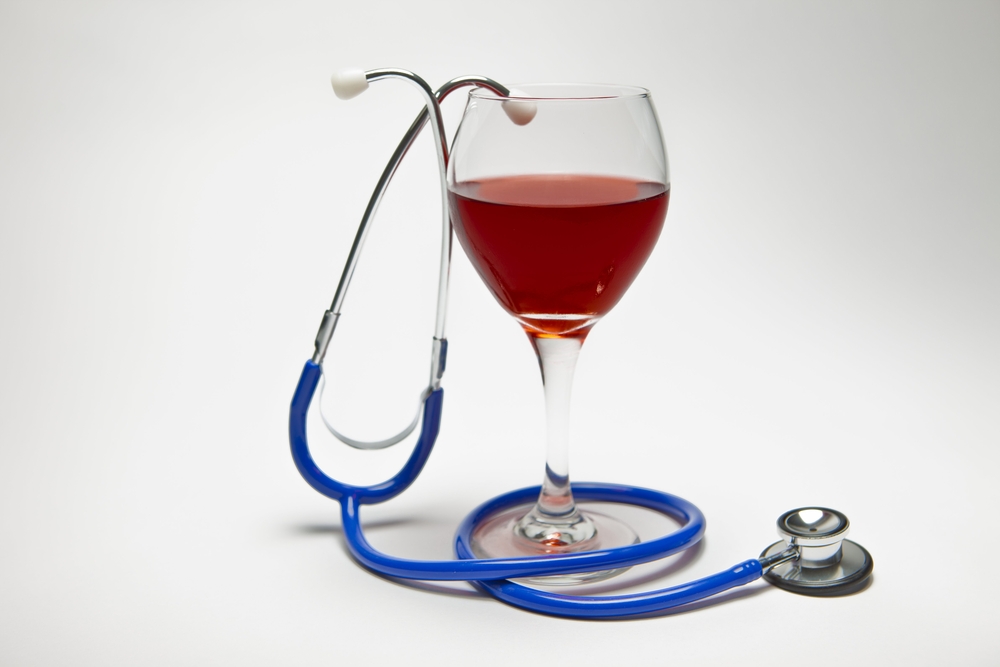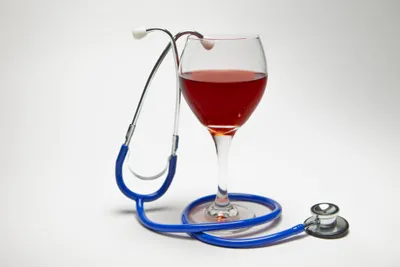We all know that alcohol can have detrimental affects on our health if it’s abused—not to mention our personal reputation (i.e., sloppy texts, poor decisions, and more). It’s true that liver damage, alcohol poisoning, and even death can be caused by long term alcohol abuse. But have you ever wonder, like I do, if it’s better to say, pour yourself a glass of red wine to sip daily or confine your drinking to the weekends?
As more of a weekend drinking warrior who imbibes very little during the week, I’m curious to know what the actual experts have to say about our wine, beer, and liquor drinking habits…
1. Moderation
When it comes to the case for moderation, or drinking a little bit on a regular basis, there is a large body of research to support the case for moderate drinking. No doubt you’ve read news articles that tout the benefits of moderate drinking to ward of cardiovascular disease, stroke, diabetes, and even dementia.
However, according to research from UCLA’s School of Medicine, even though studies support the cause for moderation, studies show that those positive benefits are typically aimed at moderate drinker in middle-age to senior years—and not reaped by individuals in their 20s and 30s.
2. Less is More with Alcohol
Sure, controversy swirls when it comes to the topic of alcohol and it’s health advantages vs. disadvantages. Arguably, certain types of alcohol (i.e., wine) is favored over others (i.e., beer) for its health benefits, studies mostly agree that less is more when it comes to hooch.
For instance, research conducted by the Mayo Clinic, found that drinking red wine daily can lower the risk of heart disease, stroke, and promote heart health due to a polyphenol in the red vintage, called resveratrol, which increases good (HDL) cholesterol. The artery-protecting abilities of red wine are lost if not conducted in moderation.
3. Don’t Drink for Health Reasons
Alright so moderation might be the preferred method of alcohol drinking. However, both the National Heart, Lung and Blood Institute along with the American Heart Association don’t recommend swilling alcohol as a means of keeping heart disease at bay.
In fact, the experts are clear that addiction to alcohol can result in liver damage, obesity, certain cancers, high blood pressure, and even heart failure. Doctors agree that individuals with bad cardiovascular health or patients taking aspirin should avoid alcohol altogether.
4. Do you Know Your Daily Limits?
Moderation is all fine and dandy in theory, but are you actually aware of your defined daily alcohol limit? The National Institute of Alcohol Abuse and Alcoholism states that a single drink can be considered a 12-ounce serving of beer, 1/5-ounces of distilled spirits, and a 5-ounce glass of wine.
Also, age and gender is a consideration (i.e., weight), which is why experts recommend sticking to 1 drink daily for healthy women and men over the age of 65-years, and 2 daily drinks for males under age 65.
5. The Dangers of Binge Drinking
Alright, I admit to having a few too many glasses of wine (past the moderate range) this past Saturday evening. And believe it or not binge drinking—which is defined by the National Institutes of Health as 4 drinks in under 2-hours for women and 5 drinks in less than 2-hours for men—even if it’s just one evening, can be harmful to your health.
According to research from the Public Health and Addiction studies department at Syracuse University, binge drinking in this manner can increase the chances of heart, kidney, brain, and liver disease, and even affects breathing function. Particularly if you make binge drinking an regular weekend occurrence.
6. Binge Drinking and Breast Health
Unfortunately, women already get less leeway in the imbibing arena due to weight (men just tend to weigh more) and metabolism (men also metabolize alcohol faster than women). For instance, studies from the NIH’s review of the Nurses’ Health Study and Health Professionals Follow-up Study, found that women with a family history of breast cancer should take even more caution.
The study monitored a group of 88,084 female and 47,881 male participants and discovered that as little as a single drink daily increased the breast cancer risk for women—even for females who have never smoked.
7. Accidents and Binge Drinking
It’s difficult to argue that we aren’t more prone to lapses in judgment when we’re drinking (come on, we’ve all woke up to embarrassing Facebook pics). According to medical professors at Columbia University’s Division on Substance Abuse, regular bouts of binge drinking can cause higher risk of accidents, injuries, and insomnia, particularly for females.
In fact, impulse control is largely skewed by booze or as Dr. Alison Moore, professor of geriatrics and psychiatry at the UCLA School of Medicine, calls it, “liquid courage”. She points to impulsive, regrettable behavior (i.e., eating junk food, one night stands, and texting exes) as the most common casualties of binge drinking.










